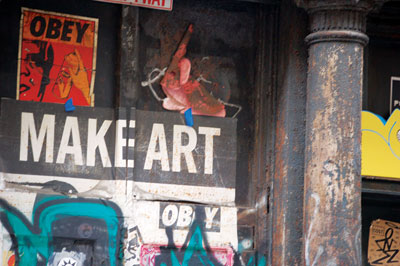All Nonfiction
- Bullying
- Books
- Academic
- Author Interviews
- Celebrity interviews
- College Articles
- College Essays
- Educator of the Year
- Heroes
- Interviews
- Memoir
- Personal Experience
- Sports
- Travel & Culture
All Opinions
- Bullying
- Current Events / Politics
- Discrimination
- Drugs / Alcohol / Smoking
- Entertainment / Celebrities
- Environment
- Love / Relationships
- Movies / Music / TV
- Pop Culture / Trends
- School / College
- Social Issues / Civics
- Spirituality / Religion
- Sports / Hobbies
All Hot Topics
- Bullying
- Community Service
- Environment
- Health
- Letters to the Editor
- Pride & Prejudice
- What Matters
- Back
Summer Guide
- Program Links
- Program Reviews
- Back
College Guide
- College Links
- College Reviews
- College Essays
- College Articles
- Back
Representation Shapes a Generation
My generation grew up watching, reading, and looking up to hundreds of different characters from popular culture. By the time we were three, most of us could recognize each character on Sesame Street. By eight, we were reciting Hannah Montana episodes in our sleep. By thirteen, we had Harry Potter, Percy Jackson, and Katniss Everdeen leading us through adolescence with magic, history, and dystopian rebellions. We’ve had more access to media than any people that have come before us, yet these stories that influence us from birth still lack the diversity that we experience each day off screen. Media in the United States needs to incorporate more diverse characters, while avoiding stereotypes, in order to make sure all Americans feel represented fairly and to inspire empathy in already represented viewers.
First, it’s important to recognize that there is a disconnect between what is happening on screen and what is happening in real life. America is filled with more diversity than ever before. Despite this, the majority of our on screen population is straight, white males. Even women, who have never been a minority are often wrongly depicted or not depicted at all.
So, why does this even matter? Diversity needs to be included in the media because all Americans deserve to feel represented. Young girls who are brave and love to play outside shouldn’t have to open a book to only see princesses. Young boys questioning their sexualities shouldn’t have to log online to only witness the same gay sidekick with amazing fashion sense. People of color shouldn’t have to witness tv shows where there is only one colored friend in the group, and he is the butt of all his white friends’ jokes. The characters we grow up with help shape who we are and who we want to become. If young people in our country are given more multifaceted characters like Santana in Glee, a girly lesbian who knows exactly what she wants, or Cece in New Girl, an Indian with immigrant parents who’s also a model, or Derrick Morgan in Criminal Minds, a black FBI agent who leads his entire team, then they will be able to participate in the same self growth as others.
Whether we like it or not, media influences real life.
It affects all people who witness inaccurate portrayals, even if some of those viewers personally feel represented. These character tropes cause members of marginalized groups to look at themselves in a negative light, and don’t encourage the rest of society to think of them any different. If our society sees enough damsels in distress, gay best friends, and token colored characters, why would we expect anything different from those living in our community?
Representation that is done correctly humanizes people better than anything else in our society could. Viewing multifaceted, realistic, and most of all diverse characters on a daily basis helps people empathize with others better. That small town grandma watching daytime TV could see Oprah and think twice before voting for racist policies or using slurs. A parent who’s never met a thriving gay couple in person could see Ellen Degeneres online and be more empathetic when a daughter brings home her girlfriend. Not only do these media role models affect those they are representing, they affect the perspectives of everyone who comes in contact with them.
We, as citizens, don’t get to choose what goes on television, and I’m not suggesting that we all start creating our own series that have exclusively lesbian people of color, although if someone wants to do that, I’d totally support it. Instead, we need to use our position as the audience to encourage the real writers, artists, and producers to create diverse characters by supporting the tv shows that have them. We can also support organizations like GLAAD, which works to promote the creation of LGBT characters in television, radio, and print media.
Correct representation will do more than inspire marginalized groups to aim higher and dream bigger, like the media has helped our generation do since we were babies. It will inspire tolerance in our country overall, and make the world a little bit safer for those who are already targets of discrimination. For those reasons, we should work as a country to support the media outlets that promote accurate portrayals of all American citizens and work towards including more representation in all forms of media.

Similar Articles
JOIN THE DISCUSSION
This article has 0 comments.
